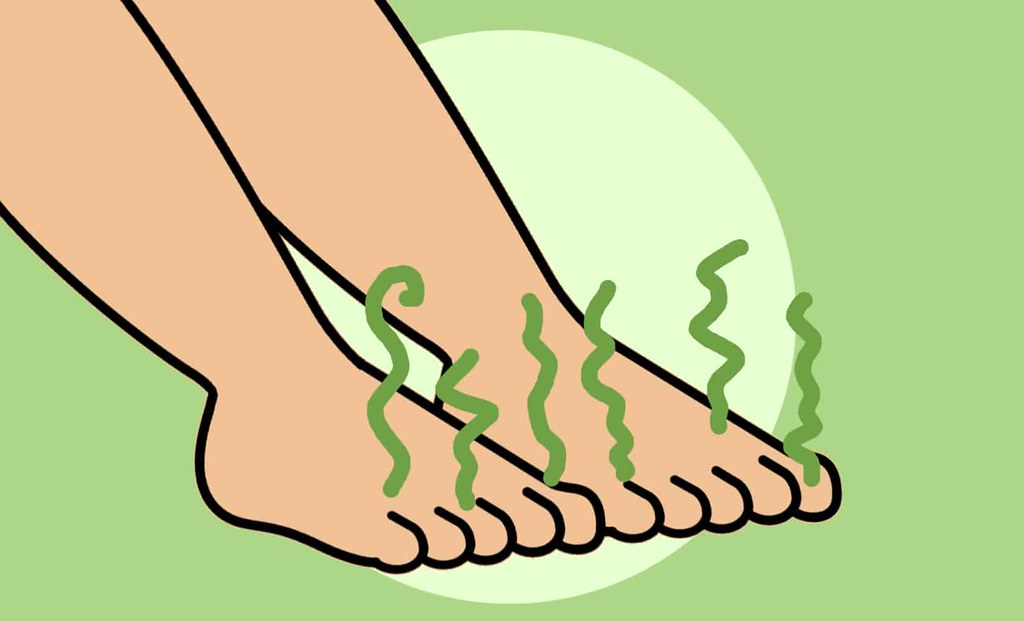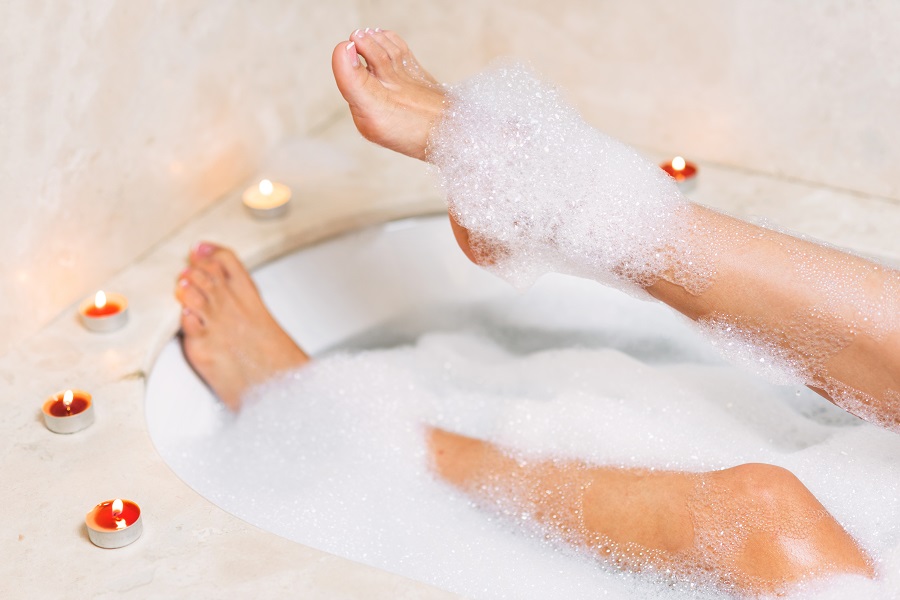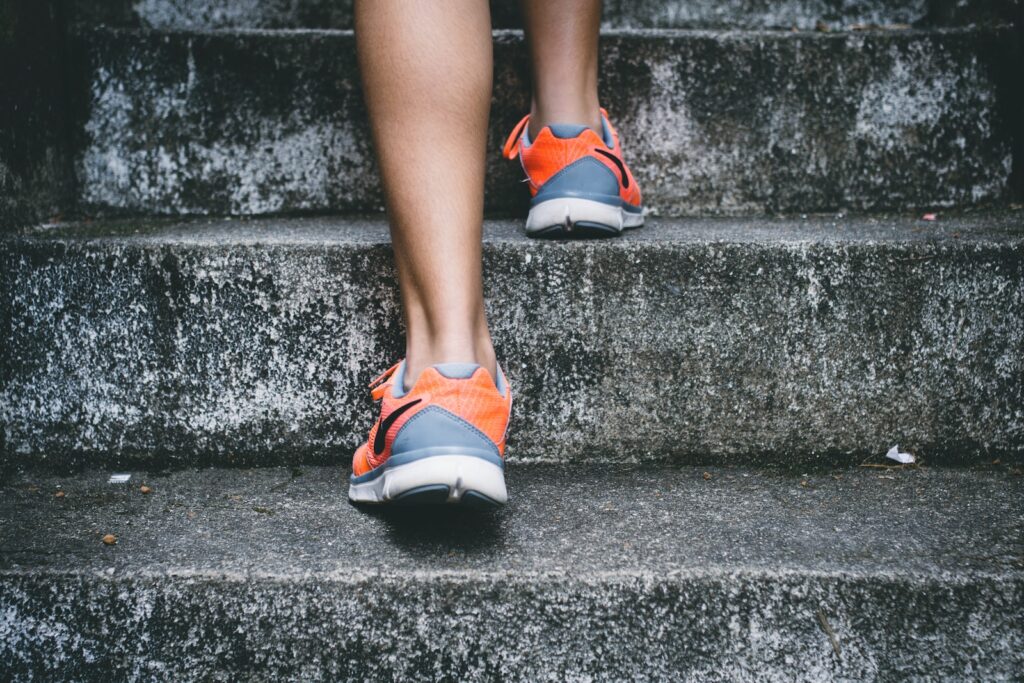Unpleasant Odor of the Feet: Causes and Treatment Methods
A well-groomed and tidy appearance is always a step towards creating a positive impression on others. Therefore, it is crucial that every detail does not become a hindrance, let alone a reason for undermining one’s image. One such issue that not only spoils the impression of communication but can also lead to significant self-confidence issues is the unpleasant odor of the feet.
Unpleasant Odor of the Feet: Causes
The problem of developing a repulsive foot odor, although delicate, is widespread and causes discomfort for both the individual experiencing it and those around them.
The main cause of the foul odor is often attributed to hyperhidrosis (excessive sweating), but this is not entirely accurate. The fluid secreted by human sweat glands, while containing substances harmful to the body, is practically odorless. However, it provides a favorable environment for the growth of various microorganisms, which, as a result of their life processes, release substances with an unpleasant odor for humans.
Why does an unpleasant foot odor occur in a healthy individual:
- Neglect of basic foot hygiene: walking in dirty and damp shoes, wearing dirty socks, reluctance to regularly wash feet and remove calloused skin on the soles.
- Wearing socks, stockings, and tights made of cheap synthetic materials.
- Wearing low-quality or tight shoes that do not allow proper air circulation.
- Individual physiological characteristics causing hyperhidrosis during an active lifestyle, physical exertion, or in stressful situations.
Another cause is fungal infections, disrupting the water-salt balance of the skin and creating a favorable environment for the proliferation of pathogenic microorganisms.
Unpleasant Odor of the Feet in Men
Due to the physiological characteristics of male body structure, men have larger sweat glands and a higher quantity of them on their bodies compared to women. As a result, the process of perspiration is more active in the male population, and they are more prone to hyperhidrosis (excessive sweating).
Another reason for increased perspiration in men is their larger body mass, and consequently, a higher amount of body fluid.
Therefore, high physical activity, the use of closed protective footwear, and neglect of personal hygiene rules can lead to hyperhidrosis in almost every man and, consequently, an unpleasant foot odor.
Unpleasant Odor of the Feet in Women
The causes of increased foot perspiration in women may include diets and improper nutrition leading to metabolic disorders, as well as any hormonal changes in the body (puberty, menstrual cycle stages, menopause).
How to Get Rid of Unpleasant Foot Odor
If you notice increased perspiration and an unpleasant foot odor, take immediate measures. Delay can lead to the development of fungal infections and other infectious diseases, which can result in various complications.

Follow basic foot hygiene requirements:
- Regularly wash your feet with cold or cool water using antibacterial, household, or tar soap.
- Thoroughly dry your feet after water procedures.
- Trim your toenails in a timely manner.
- Regularly remove dry calluses and skin growths on the soles and heels.
- Wear socks made of 100% cotton, without the use of synthetic materials.
- Change socks daily, and if your feet sweat excessively, change them 2-3 times a day.
- Use simple cosmetic products for increased perspiration: foot creams, deodorant gels, powders.
- Avoid walking barefoot in public places (saunas, pools).
Recommended to Read: Understanding Feet Toxins

Wear loose shoes made of natural materials and take care of them:
- Purchase footwear made of “breathable” materials or with a special membrane that ensures air circulation.
- Clean or wash the inner part of your shoes and treat them with antiseptics and special deodorants.
- Dry wet shoes, and do not leave them wet for an extended period.
- Avoid wearing the same pair of shoes for several consecutive days; allow your shoes to ventilate.
- Wear changeable lightweight footwear at work or in educational institutions, especially during cold seasons.
- Purchase and regularly change antibacterial insoles.
For the treatment of increased foot perspiration, perform therapeutic foot baths:
- Salt baths – dissolve 4 tbsp of sea or regular table salt in 1 liter of warm water.
- Baking soda baths – mix 3 tbsp of baking soda in 1 liter of warm water; you can add a few drops of tea tree, pine, eucalyptus, lemon, mint, or cypress essential oil.
- Herbal baths (marigold, mint, oak bark, succession, celandine, sage) – pour 3 tbsp of any herb into 1 liter of boiling water and infuse for 1 hour.
Take baths for 20-30 minutes, and continue the procedures for 10 days.
If you lead an active lifestyle and need to spend extended periods in closed shoes, use talcum powder, baby powder, or cornstarch to reduce foot perspiration. Sprinkle a small amount into your socks and inside your shoes.
If signs of fungal infection appear (itching, redness, and peeling of the skin), consult a dermatologist and undergo an examination for the presence of diseases. Even in the treatment of a common fungal infection, it is necessary to seek the advice of a specialist who will prescribe the necessary medication.
Daily hygiene procedures, combined with proper shoe care, will help eliminate and prevent the occurrence of unpleasant foot odor, preserving their beauty and health in the long run.
Using Green Tea Foot Pads
In addition to therapeutic foot baths, another natural remedy for addressing foot odor is the use of green tea foot pads. Green tea is known for its antibacterial and deodorizing properties, making it an effective solution for controlling unpleasant odors.
To use green tea foot pads:
- Prepare the Foot Pads: Acquire commercially available green tea foot pads, ensuring they are made from natural materials. These pads typically contain a combination of green tea extract, Breakdown of Detoxifying herbs, and other natural ingredients.
- Cleanse and Dry Feet: Before applying the foot pads, ensure your feet are clean and dry. Wash your feet with mild soap and water, and thoroughly dry them with a towel.
- Apply the Pads: Peel off the protective backing from the foot pads to expose the adhesive side. Place the pads on the soles of your feet, ensuring they adhere securely.
- Leave Overnight: It is recommended to leave the green tea foot pads on overnight to allow them sufficient time to absorb excess moisture and potential toxins.
- Remove and Discard: In the morning, carefully remove the foot pads and discard them. You may notice changes in color or dampness, indicating that the pads have absorbed impurities.
- Repeat as Needed: For ongoing foot odor management, use green tea foot pads regularly, following the recommended usage instructions on the product packaging.
Green tea foot pads not only help control foot odor but may also contribute to a sense of relaxation and well-being due to the potential calming properties of green tea. However, if you have existing foot conditions or concerns, it is advisable to consult with a healthcare professional before incorporating new products into your foot care routine.
